Growth of Islamic banking and finance in Pakistan
Country ranks nine Preview Changesin development of Islamic financial services industry.
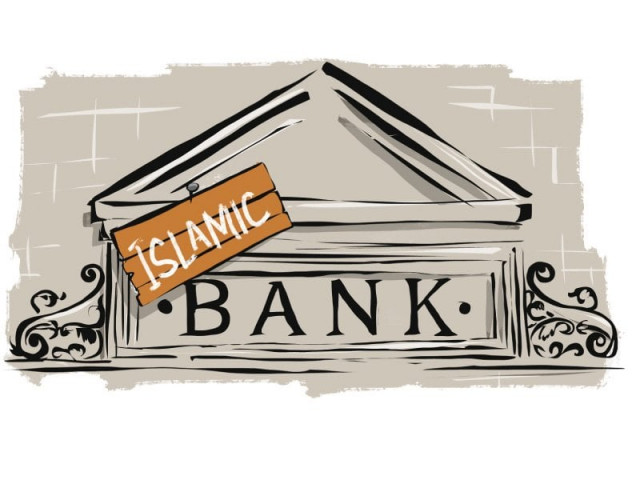
Pakistan ranks nine in development of Islamic financial services industry. ILLUSTRATION: JAMAL KHURSHID
A London-based Islamic financial advisory company, Edbiz Consulting, has formulated the Islamic Finance Country Index (IFCI), which ranks about 50 countries of the world in terms of their role in developing, promoting and advocating Islamic banking and finance. Pakistan comes after eight countries, namely Iran, Malaysia, Saudi Arabia, Bahrain, Kuwait, United Arab Emirates (UAE), Indonesia and Sudan.
The Global Islamic Finance Report 2014 estimates the size of the global Islamic financial services industry at $1.813 trillion at the end of 2013. This represents 12.3% annual growth over 2012, an increase of $182 billion in absolute terms.
Many Islamic financial institutions appear among top five banks in their respective countries. In Pakistan, the largest Islamic bank is Meezan Bank, which is fast assuming mainstream prominence.
Growth of Islamic banking in the country has been over 30% in the last few years, which is certainly above the average global growth rate of Islamic banking and finance. If this trend continues, then one should expect that in the next three years Islamic banking assets will at least double from its current size of Rs926 billion.
New strategy
The newly unveiled Islamic banking strategy by the State Bank of Pakistan attempts to double the number of Islamic banking branches from 1,200 in the next four years, and to increase its market share from 10% to 15%.
Given the huge potential the country has in terms of Islamic banking, increasing the share to 15% is a modest aim. Indeed, if Islamic banking fails to achieve 20% share in the market by 2018, by all indicators, it has failed to reach its potential.
Given that a number of banks are showing renewed interest in Islamic banking, the industry should target an increase of 2% in market share every year through Brownfield growth, ie cannibalisation of conventional banking and through conversion of conventional into Islamic banks.
Once Summit Bank is converted into a full-fledged Islamic bank, it will become the second largest Islamic bank in the country, taking the number two position from BankIslami (assuming that BankIslami does not grow further). Only this will give 8% additional market share to Islamic banking over the next four years.
If Islamic banks exhibit Greenfield growth, more than the growth in conventional banking, it should be able to double its market share. Greenfield growth is not only possible but is in fact needed in Pakistan where there is widespread financial exclusion.
If Islamic banking is used as a tool for promoting financial inclusion, there is no reason that Islamic banking should not be able to achieve the important milestone of 20% market share.
If that happens, the country will stand next to a number of Gulf countries and Malaysia where Islamic banking represents between 20% and 30% of the market share. Pakistan, however, will become the most important player in Islamic banking and finance, if it attains 20% market share. This is so because the country is the second largest Islamic market (population-wise) after Indonesia.
The writer is an economist and a Phd from Cambridge University
Islamic finance
Country IFCI Rank
Iran 1
Malaysia 2
Saudi Arabia 3
Bahrain 4
Kuwait 5
UAE 6
Indonesia 7
Sudan 8
Pakistan 9
Qatar 10
Bangladesh 11
Turkey 12
United Kingdom 13
Egypt 14
USA 15
Jordan 16
Brunei Darussalam 17
Yemen 18
Lebanon 19
Singapore 20
Published in The Express Tribune, March 3rd, 2014.
Like Business on Facebook, follow @TribuneBiz on Twitter to stay informed and join in the conversation.

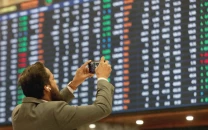



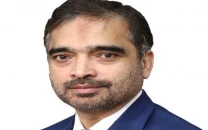


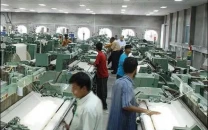
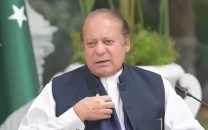

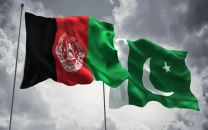
1726134115-0/BeFunk_-(41)1726134115-0-208x130.webp)


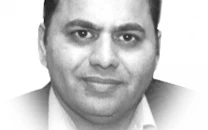



COMMENTS
Comments are moderated and generally will be posted if they are on-topic and not abusive.
For more information, please see our Comments FAQ